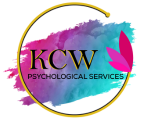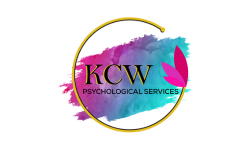“Difficult Roads Lead to Beautiful Destinations” – Zig Zigler
Types of Services Offered At KCWPSYCH
Below are the types of services that are offered at KCWPSYCH for both clients and mental health professionals:
New Client Consultation
During the consultation session you meet with the your prospective therapist via online/telehealth/video. The therapist will obtain information regarding your current symptoms, behaviors, challenges, functioning, and your goals for treatment. The therapist discusses the treatment process, duration, and how your treatment will be individually tailored to your specific symptoms, challenges, and needs.
During the consultation you will be able to share your thoughts and questions about the treatment process, and speak with your prospective therapist to decide if you think your therapist will be a “good fit,” for you to have ongoing therapy services.
At the end of the consultation session you can inform the therapist if you would like to proceed with treatment, or contact the therapist after the consultation session, to provide that information. If you would like to move forward with therapy then you and the therapist can schedule the date and time of the initial assessment session.
Client Assessment
The therapist will conduct assessments before and throughout the treatment process to formally evaluate your functioning and to assess your symptoms, in order to formulate a treatment plan of how we will address your challenges. Prior to the initial assessment session the therapist will provide you with questionnaires /assessments to complete and submit to the therapist. You and the therapist will develop a treatment plan by discussing your current symptoms, challenges, and deciding the specific goals you would like to address in treatment.
You and your therapist will construct therapeutic interventions in therapy/treatment, will begin to implement them in your daily life.
Types of Treatment Modalities for Clients:
- Individual Therapy
- Collateral Therapy sessions (as needed)
- Family Therapy Sessions (as needed)
- Group Therapy Sessions coming soon!
- Coaching Services coming soon!
Therapy / Treatment for Clients
Once the therapy process begins you will meet with the therapist on a weekly or bi-weekly basis to begin to address some of your challenges and concerns.
The therapist will integrate their professional training, personal experiences, and a variety of treatment interventions such as:
- Talk Therapy
- Wellness Practices
- Expressive Arts / Creative Arts: interventions (such aspects of Dance/Movement, Visual Art, Music, Mindfulness …etc).
- And other therapeutic specializations/ interventions tailored to the needs of each client.
to assist you with processing your challenging thoughts, feelings, and experiences. Treatment modalities are utilized when warranted, and based on your interest, comfort level, and request.
Clinical Supervision and Professional Training Program for Pre-licensed Therapists
A training program for pre-licensed therapists. The program provides clinical training, supervision, mentorship, and assists pre-licensed therapists with developing the professional and clinical skills essential to maintaining a successful career in mental health care.
Supervision for Mental Health Professionals
Supervision of pre-licensed therapists who are and are not enrolled in our Clinical Supervision and Training Program
Mental Health Colleague Consultation Services
- Providing case consultation, resources, references, referrals, and clinical support regarding client cases.
- Career development
- Private/Group Practice Development
What is Therapy?
Therapy is a collaborative process between a therapist and a client aimed at facilitating change and improving the quality of life. It can be applied in various modalities, including group therapy, couples therapy, and the aforementioned individual and family therapy. Therapy offers a myriad of benefits; the therapeutic journey is a transformative process. It equips individuals and families with the tools, insights, and understanding needed to lead a more fulfilling and emotionally balanced life.
How is Therapy Helpful for People?
- Healing: Therapy provides a space for healing from traumas, grief, and emotional wounds.
- Skill Development: Clients learn skills like emotional regulation, stress management, and interpersonal effectiveness.
- Perspective Shift: Therapy can offer new perspectives on challenges, enabling clients to approach problems in different ways.
- Validation: Having one’s feelings and experiences validated can be a powerful step towards self-acceptance.
- Empowerment: Therapy empowers individuals to take control of their lives, make informed decisions, and build healthier relationships.
What is Individual Therapy?
Individual therapy, often referred to as psychotherapy or counseling, is a process through which clients work one-on-one with a trained therapist in a safe, caring, and confidential environment. The sessions are tailored to explore feelings, beliefs, and behaviors, work through challenging memories, identify aspects of their lives they would like to change, and set personal goals. This therapeutic setting allows for deep introspection and self-exploration, aiming to foster personal growth and improve overall well-being.
How is Individual Therapy Helpful?
- Personalized Attention: Individual therapy offers a unique, undivided focus on the client’s concerns, ensuring that the therapeutic process is tailored to their specific needs and goals.
- Safe Space: It provides a confidential environment where individuals can express themselves freely, discuss their feelings, and confront obstacles without judgment.
- Self-awareness and Insight: Through guided discussions, individuals can gain a deeper understanding of themselves, their motivations, and their patterns of behavior.
- Coping Strategies: Therapists equip clients with tools and techniques to manage stress, anxiety, depression, and other emotional challenges, helping them navigate life’s ups and downs more effectively.
- Improved Relationships: By understanding oneself better and addressing personal challenges, individuals can improve their relationships with family, friends, and colleagues.
- Resolution of Past Traumas: Individual therapy can help process and heal from past traumas, allowing individuals to move forward with a renewed sense of peace.
- Goal Setting: With the guidance of a therapist, clients can set realistic and achievable goals, paving the way for personal growth and fulfillment.
- Enhanced Quality of Life: Over time, the insights and skills gained from individual therapy can lead to a more balanced, fulfilling, and meaningful life
Individual therapy is a powerful tool for personal growth and healing. Whether navigating life transitions, coping with mental health challenges, or simply seeking a deeper understanding of oneself, individual therapy offers a supportive and transformative environment. By engaging in this therapeutic journey, individuals can unlock their potential, overcome barriers, and lead a more enriched life.
Collateral Therapy Session vs. Family Therapy Session:
Understanding the Differences
When warranted we integrate wellness practices and expressive arts interventions into our therapy sessions and interventions as well.
| | COLLATERAL THERAPY | FAMILY THERAPY |
|---|---|---|
| DEFINITION | Collateral therapy, often referred to as collateral sessions, involves a primary client and one or more significant individuals in their life. These significant individuals can be family members, partners, or close friends. The primary focus remains on the main client, but the session seeks input and perspective from the collateral participants. | Family therapy involves multiple family members, treating the family as a whole rather than focusing on a single individual. All members are considered clients in the therapeutic process. |
| PURPOSE | The goal is to gather additional information, perspectives, and insights that can aid in the treatment of the primary client. It can also address how the client's challenges impact their relationship with the collateral participant. | The goal is to address family dynamics, communication patterns, and relational issues that impact the family system. It seeks to foster understanding, improve communication, and resolve conflicts within the family unit. |
| DURATION | Collateral sessions might be occasional or one-time occurrences, depending on the treatment plan and the therapist's assessment. | Family therapy sessions can be a primary mode of treatment, with regular sessions over an extended period, depending on the family's needs. |
| FOCUS | The primary focus is on the well-being and therapeutic goals of the main client, with the collateral participants providing support, insights, or clarification. | The emphasis is on the family system as a whole. It addresses how individual behaviors impact the family dynamics and how the family structure and patterns influence individual behaviors. |
While both collateral therapy and family therapy sessions involve multiple participants, their focus and approach differ. Collateral Therapy centers on the primary client, using the input of significant others to enhance their treatment. In contrast, Family Therapy views the family as an interconnected system, aiming to improve the overall dynamics and relationships within that system. Both approaches, however, recognize the profound influence relationships have on an individual’s well-being and mental health.
What is Group Therapy?
Group therapy is a form of psychotherapy where a small group of individuals, usually 5-15 people, meet regularly under the guidance of a trained therapist. The group setting allows participants to share their experiences, feelings, and challenges with others.
How is Group Therapy Helpful to People?
- Shared Experiences: One of the primary benefits of group therapy is the realization that one is not alone. Hearing others discuss their challenges and feelings can be immensely reassuring.
- Diverse Perspectives: Group members offer varied perspectives on challenges, providing multiple insights and solutions that one might not have considered.
- Supportive Environment: The group setting fosters a sense of community and support. Members often provide encouragement and understanding to each other, creating a safe space for expression and healing.
- Skill Development: Group therapy sessions often involve learning new coping strategies, communication skills, and behavioral techniques. Observing how others handle similar challenges can be enlightening.
- Feedback: Receiving feedback from multiple individuals can help one gain a broader understanding of oneself and one’s behaviors. This feedback is often constructive and delivered in a supportive manner.
- Cost-Effective: Group therapy can be more affordable than individual therapy, making it accessible to a wider range of individuals.
- Promotes Social Skills: Interacting with group members can enhance social skills, especially for individuals who struggle with social interactions.
Group therapy offers a unique therapeutic environment where individuals can find support, understanding, and a sense of belonging. By sharing challenges and solutions in a group setting, participants can gain insights, develop new skills, and build meaningful connections with others who are navigating similar life challenges.

